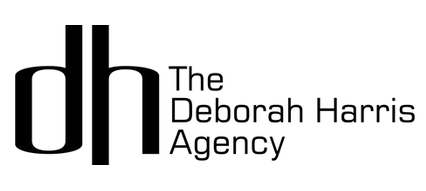THE END OF THE REGIME

Nonfiction, Alpina, 2023
International bestseller
When the first edition of THE END OF THE REGIME was published in Russia in January 2023, the book sold out in a matter of days - having since become an absolute bestseller - and its author was quickly labelled a “foreign agent” by the government. Readers had no trouble grasping between the lines what the author, in narrating the end of the last dictatorial regimes in Western Europe, meant to say about Vladimir Putin’s Russia. In this new edition, updated for the international audience, Baunov abandons the metaphorical language used to circumvent censorship and makes explicit those parallels that the Russian reader was able to immediately understand.
The resonances with current events are many: in the story of the collapse of the Greek dictatorship after the attempt to annex Cyprus, which it considered an integral part of the country; in the collapse of the Portuguese regime, marked by a colonial and imperialist war that lasted for years; and finally in the perspective of hope given by the democratic transition in Spain. With a narrative pace and the vision of the historian, Baunov offers precious tools for reading the present and for imagining the end of the Russian dictatorship. The hope, for Russia and the world, is that the awareness of the past governed by tragic illusions will help humanity overcome its current failings and avoid making the same mistakes in the future.
Rights Sold:
Italy: Mondadori (pre-empt); Hungary: Helikon; Portugal: Presença (auction); Spain: Arpa
Reviews:
"There are books whose destiny, as in a circular Borges-like way, ends up being part of the very story they tell. And they are often among the most extraordinary. THE END OF THE REGIME by Alexander Baunov is one of them." —Corriere della Sera (Italy)
“Historical narrative that reads like a gripping novel.” —Snob (Russia)
“Alexander Baunov knows how to talk about the past in such a way that the narrative not only seems fascinatingly rich, but also becomes a detailed commentary on what is happening to us today.” —Kirill Serebrennikov, theatre director
“Alexander Baunov’s book [is] perhaps the most powerful and useful statement about Russia’s prospects.” —Galina Yuzefovich for Meduza (Russia)
“For Russians, reading is the new resistance… In Baunov’s book, readers are looking for examples—and for glimmers of hope.” —Foreign Policy (US)
“By analysing the crucial moments that led to the dissolution or transition towards democracy of these dictatorial regimes, the reader cannot help but think about the current situation and future developments: clearly, with optimistic hope for those who hope for freedom, with reasonable apprehension for those who closely support the regime of the Tsar of Leningrad.” —MAMe (Italy)
“A book about Spain in the 1970s called THE END OF THE REGIME, written by the former editor-in-chief of the Carnegie.ru website and published in 2023, cannot be perceived as anything other than current journalism.” —Baltijas Balls (Latvia)
“Alexander Baunov has become one of the most important voices for me in the last ten years.” —Guzel Yakhina, author of the bestselling ZULEIKHA and A VOLGA TALE
“In the preface to THE END OF THE REGIME, Alexander Baunov, a graduate of classical philology, calls Plutarch’s PARALLEL LIVES his inspiration for the book. This reference immediately hints at the fact that here is a special, slightly old-fashioned, but always attractive type of historical narrative, in which the past serves as a lesson for the present and the future… END OF THE REGIME reads like an optimistic book about how autocracies, even the most stable ones, always come to an end and not necessarily through disaster.” —Kommersant (Russia)
“The impressive hole that has been gaping in Russian non-fiction has finally been closed... The events in the book are described as the people living through them see them. There is no predetermination; their progress depends on countless participants, coincidences and external factors, and every day matters… This insider's view captures the complexity of how history is shaped.” —Gorky.media (Russia)
